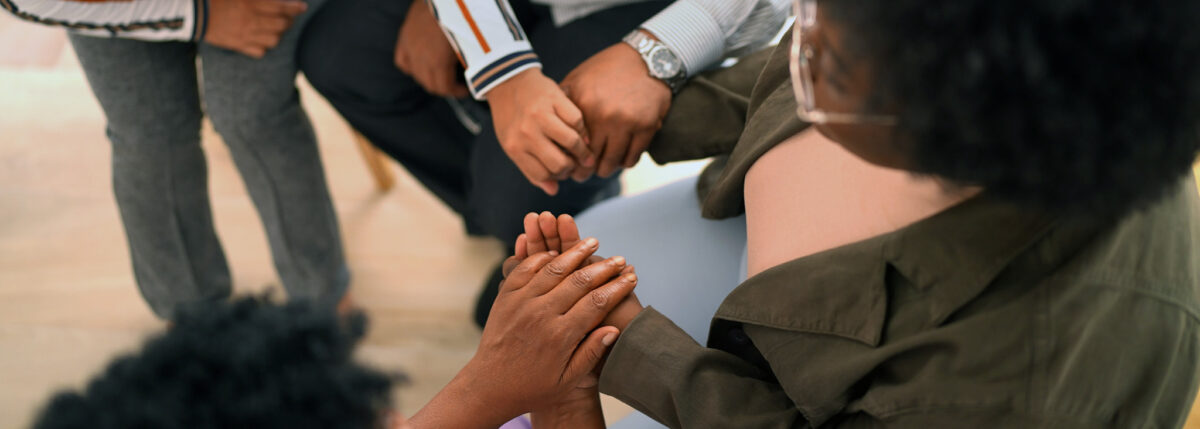The Importance of Finding a Community For Grief
Editor’s note: This article was originally written in 2018 for Jesse Was Here. It may have been edited for length and clarity. Sensitive Topic Warning: This article mentions suicide. If you are struggling or contemplating suicide, please reach out to your heatlhcare team or emergency services.
Eight years ago when my son passed away, I remember one thing quite clearly. I desperately needed to speak to someone—and I mean ANYONE—who could even for a moment understand my exact feelings, emotions, grief and pain.
As someone who has lost, I’m sure you’ve reached out in a number of ways. Now is a fascinating time for grief. You don’t have to drive downtown somewhere to meet in a room filled with sad people who are drinking coffee and talking about their pain. Today, we can easily go to our good friend Google and type those words—death due to type 1 diabetes (T1D)—and we can find a plethora of information both good and bad.
Search and find pain
What is it exactly we find when we search those terrible words? I find “Dead In Bed”, which is less commonly used as we see that more people dying of T1D are not exactly in their sleep.
We see statistics from the NIH, from the American Diabetes Association and others. We see mortality rates, and even more so, we see it become very personal.
Names of kids that never made it to middle school, never went to prom and didn’t leave for college. We see finger pointing by fearful parents who just want to hear that the parent must have done something wrong. Not knowing the story, they don’t realize that they just piled more grief and guilt onto an already guilt-ridden parent who is barely getting through the minutes, let alone hours.
You’re not alone
You know you need help, and most certainly your friends and family are trying to tell you a path to go down. So you ask yourself, “Do I need grief counseling? Where would I go? Do I go to a local grief group? Do I look for an online community and would one even exist?”
You are not alone in these questions.
I remember at my son’s funeral and the days leading up to it, so many people gave me this little brown book that was quite simply supposed to walk me through my grief, step by step, in a handful of pages. Grief is that simple, I guess. Or not.
As I explored grief my way I realized a few things for myself. First, grief was not going to be solved in a few steps and pages. About a month after the funeral I was invited to a party. My friends thought it would be good for me to get out of the house and be around others. Right or wrong, I went. There were moments of laughter, a relief for those first days.
A woman came up and introduced herself to me. She had lost her son about a year prior to epilepsy. I thought, “Oh my gosh! This woman knows what I feel, she can help!” As I sat listening to her, I quickly realized we were very different people.
While she chose to live in her grief and hadn’t moved forward in it, I was one to try to find true help, to get through each day in the hope that someday I would breath again. I slowly walked away with my second grief lesson. Just because someone else lost a child does not mean they will understand you and be able to help you.
Over the years of communicating with other families who have lost children to T1D, I learned many different feelings and opinions from the families. While a grief therapist worked for one person, it did not for another.
Maybe it would help most to hear true feelings from other parents.
Local bereavement groups
Annie found it helpful to attend her local chapter of Compassionate Friends. Compassionate Friends has been providing support for parents who have lost a child by way of 600 chapters throughout the US and more.
For Annie, while it worked for awhile, she felt she struggled to align with a woman who lost a child to suicide and felt guilty around another mother who lost her only child while Annie had 4 remaining. For Valerie, she found a local group very helpful that was run by a mother who had lost her daughter. For Melissa, a local grief group helped her for the first couple of years.
Private + group counseling
For many of the families I’ve talked to over the years, private counseling was a struggle. For Melissa it didn’t feel “real” coming from a therapist who had never lost a child and couldn’t really know what she was feeling.
“Private counseling never worked for me. I never have actually sat down with anyone and ‘talked’ about my true feelings. But listening to others and knowing we (unfortunately) are not alone, has helped me more than a therapist could. In my opinion, a therapist won’t bring him back.”
Michael’s experience was very different. “I was referred to a grief counseling group ranch by a church that is free. The first day it was heartbreaking, but I would highly recommend going to one because in the end I made some really good friends that know exactly what I feel and think. There is nothing you can say to them that they don’t understand.”
Online community
All of the major grief counseling resources tend to have an online community. However, many parents feel it’s easier to look for people grieving in the “same way” such as the loss from type 1 diabetes at onset, or death after after living with the disease for 10 years. You can find a parent who has stood in the same shoes.
For me, I found it extremely helpful to talk to parents who were a few years ahead of me, giving me the strength to realize there is a small light at the end of the tunnel. For others, aligning with a parent who had experienced a loss around the same time was comforting and helpful.
Whether you seek face-to-face grieving, or find it in the Beyond Type 1 community, grieving is important. Know that it is completely okay to realize that just because someone you meet has also endured a terrible loss, it does not mean they have to be your best friend and identify with every thought you may have for your own grief.
We are here for one another no matter what to keep putting one foot in front of the other. For any other parent dealing with the loss of a child, please check out our resources for parents and the supportive Jesse Was Here social community.





